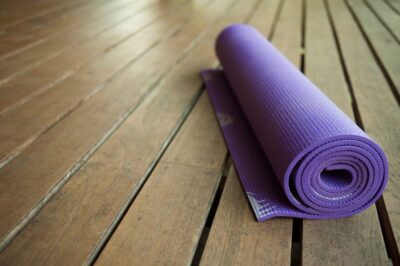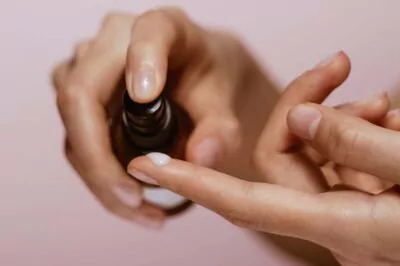Table of Contents[Hide][Show]
Guest Post by Debra Atkinson with Flipping Fifty
What gets in the way of you exercising? What interferes with you making choices you know will serve you better at meals?
You want to look better, feel better, and take better care of yourself. You want to commit to exercise and eating right. Maybe you want to go for that promotion at work. You’re choosing these goals for yourself so why can’t you commit to them?
After 34 years of coaching primarily women in fitness, nutrition, and healthy lifestyle habits through life transitions I have realized that there is one answer to those questions that has been consistent no matter what age the woman. Self-esteem.
Whether it’s been university students or professors, CEOs of companies, or accountants, the one common obstacle women face when they can’t reach the goals they have for themselves is a lack of both self-esteem and self-efficacy. They can’t actually see it in their future. When they picture the future they’re always still chasing it—thinking about food, worried about how they look—and they never arrive.
How to Flip the Script
Women are twice as likely as men to suffer from depression. That may seem like a statement from left field. It’s not. Low self-esteem can lead to depression. When we lack self-esteem or we’re depressed we tend to withdraw. We usually eat better, and in general take care of ourselves best when we interact with other people, particularly those that are doing what we want to be doing.
What Skin Reactions are Your Emotions Triggering?
Face Yoga – The Mini Facelift
4 Ways Yoga Can Help You Look Younger
Write down what it will feel like and look like when you are at your perfect energy level and weight, when you’re doing that thing that might scare you a little right now. Write in the present tense “as if” it’s already true.
Which Comes First?
Do you start feeling better about yourself or start taking better care of yourself first?
Tricky question.
Here’s the answer: Most likely, you’re going to have to take a step before you feel worthy of the step. You’re going to have to commit first to feel better second.
One great way is sign up for a yoga class. This isn’t just because of the flexibility benefits you’ll get—that’s going to be your bonus. Twice a week for 8 to 10 weeks can boost your self-esteem and the results are long lasting. Even three and six months after the yoga class is over (provided you went), you’ll still be enjoying self-esteem improvements.
But then, if you’re feeling better, there’s a great chance that you’ll still be practicing. That’s the madness behind the method. We coaches are into co-dependency of this kind.
Why Yoga?
Having practiced for 20 years and taught mostly beginners for 15, what I’ve found is three things.
First, Hatha yoga (which is what studies are based on) eliminates your ability to have negative thoughts. As you’re engaged in balance poses and flowing movement, you’re in the moment. There is no room for thinking about those worries that keep you up at night because you’re focused on breathing and moving together in a pattern. You are training your brain to be present and focused on the right now. This patterned thinking feels so good that it gets carried off the mat and into your daily tasks.
Second, and especially true if you’re a beginner, learning something new is good for your self-confidence. Your world expands as you learn. Even if it is learning the simple placement of your feet in the alignment of a pose, you grow. The second time you practice or walk into the yoga room it may be you offering assistance to a first-timer. Helping others helps us.
Third, you will, with practice, be able to do poses that you can’t do today. Experiencing that improved strength, stamina, and ability carries over into all aspects of your life. You gain self-esteem by learning that when you’re starting out it’s all right to not have all the skills or the answers. You learn to trust the journey. Yoga has a certain acceptance about it because it’s your practice even in a room with others. There’s more potential for goal setting and personal growth because there is less judgment than exists all too easily in other activities.
Beyond Yoga
When you physically feel good and you see the tangible benefits of yoga, one thing will lead to another. You will begin to eat healthier because you want to sustain better energy. Maybe you will be able to take few more phone calls every day at work. When you start feeling like it matters, like you matter, then each of your choices matter a little more too.
If you’re ready for a self-esteem flip (who has too much?) find a yoga class. Start your positivity plan right now. Corner office, more energy, or more optimal weight? Any goal starts with you believing in you. You’ve got this.








Does yoga help you flip your script? Let us know in the comments below!
Resources:
“Depression in women: Understanding the gender gap.” Mayo Clinic. Mayo Foundation for Medical Education and Research, 16 Jan. 2016. Web. 29 May 2017.
Prathikanti, Sudha, Renee Rivera, Ashly Cochran, Jose Gabriel Tungol, Nima Fayazmanesh, and Eva Weinmann. “Treating major depression with yoga: A prospective, randomized, controlled pilot trial.” PLOS ONE. Public Library of Science, n.d. Web. 29 May 2017.
Schuver, Katie J., and Beth A. Lewis. “Mindfulness-based yoga intervention for women with depression.” Complementary Therapies in Medicine. N.p., 14 Mar. 2016. Web. 29 May 2017.